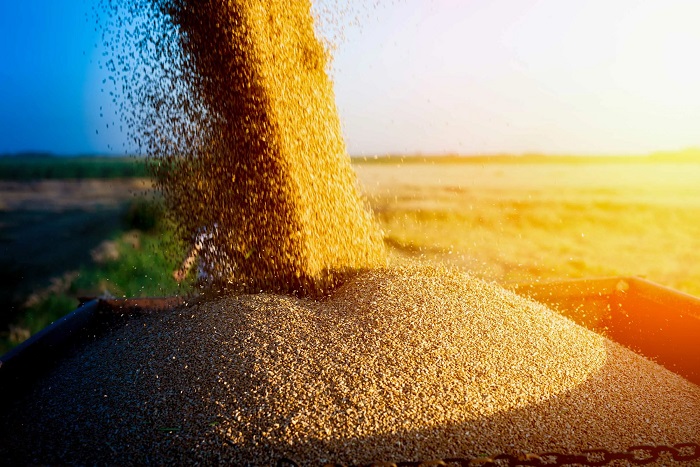Ukrainian grain has long been a cornerstone of the country’s economy, but its importance extends far beyond national borders. In recent years, Ukraine has emerged as one of the world’s largest grain producers and exporters, playing a crucial role in global food security. With its vast fertile lands and favorable climate, Ukraine’s agricultural sector wields significant influence, not just in terms of economics but also geopolitics. Ukrainian grain diplomacy has become a key factor in the country’s international relationships, particularly with nations in the Middle East, Africa, and Asia.
Ukraine’s Role in Global Grain Markets
Ukraine’s agricultural prowess is impressive. The country is among the top exporters of wheat, corn, and barley globally. Known as the “breadbasket of Europe,” Ukraine exports roughly 50 million tons of grain annually. Countries heavily reliant on imported grain, such as Egypt, Indonesia, and China, look to Ukraine as a critical supplier. These nations rely on Ukrainian grain to meet their food needs, especially as domestic production often falls short due to environmental challenges or population growth.
This agricultural influence provides Ukraine with a form of soft power, especially in developing nations. Access to Ukrainian grain often means the difference between stability and crisis in many regions. The importance of grain exports places Ukraine in a strong negotiating position when dealing with countries that are dependent on its agricultural output.
Geopolitical Impact of Ukrainian Grain
The geopolitical significance of Ukrainian grain has become more apparent during times of global tension and conflict. Russia’s annexation of Crimea in 2014 and the ongoing conflict in eastern Ukraine highlighted the critical role Ukraine’s agricultural sector plays in global stability. Disruptions to the supply of Ukrainian grain due to military conflicts can ripple through global markets, leading to higher food prices and potential shortages.
In particular, the war in Ukraine has made the world acutely aware of the risks involved in relying on a single region for food imports. As the war disrupted exports, many countries that depended on Ukrainian grain, such as those in North Africa and the Middle East, experienced shortages and price increases. This instability underscores the link between Ukraine’s agricultural sector and global political dynamics.
In response, international bodies like the United Nations and European Union have worked to ensure that grain exports from Ukraine remain uninterrupted, even in times of conflict. Initiatives such as the Black Sea Grain Initiative, brokered by the UN and Turkey, were designed to reopen Ukrainian ports and enable the flow of agricultural products. Such measures reflect the geopolitical weight Ukrainian grain carries in world affairs.
Ukrainian Grain Diplomacy in Action
Grain diplomacy is not merely theoretical; it plays out in real-world scenarios, shaping Ukraine’s relationships with various countries. For instance, grain trade agreements between Ukraine and Middle Eastern countries have solidified political and economic ties. Nations like Egypt, which relies on Ukraine for a significant portion of its wheat imports, have cultivated strong diplomatic relationships, underpinned by this agricultural trade.
At the same time, Ukrainian grain exports serve as a tool for humanitarian aid. In times of drought or food shortages, Ukraine has been able to leverage its agricultural resources to provide emergency grain shipments to affected regions. This not only enhances Ukraine’s image on the global stage but also strengthens its strategic alliances.
Moreover, Ukraine’s participation in international agricultural forums and trade negotiations allows it to influence global policies on food security and sustainable agriculture. As the global population grows, and climate change alters agricultural production patterns, countries with abundant food resources, like Ukraine, will become even more critical in global negotiations on food distribution and security.
Challenges and Opportunities for Ukrainian Grain Diplomacy
However, Ukrainian grain diplomacy is not without its challenges. The agricultural sector is highly vulnerable to external factors such as climate change, economic sanctions, and geopolitical instability. The reliance on Ukrainian grain by many countries makes them susceptible to supply disruptions caused by military conflicts, political unrest, or environmental crises within Ukraine.
Climate change, in particular, poses a significant long-term risk to Ukraine’s agricultural sector. Changing weather patterns, including more frequent droughts and unpredictable growing seasons, could threaten the country’s crop yields and its ability to maintain its position as a global grain supplier.
Despite these challenges, opportunities abound. Ukraine’s agricultural sector has the potential to further expand its influence in global markets by investing in infrastructure, innovation, and sustainability. Technological advancements in farming, such as precision agriculture and climate-resilient crops, could help Ukraine maintain its competitive edge and safeguard its agricultural exports.
Additionally, deeper integration with European and Asian markets offers new avenues for Ukraine to strengthen its grain diplomacy. By aligning itself with global initiatives on sustainability and food security, Ukraine can continue to enhance its reputation as a reliable and responsible player in global agricultural trade.
Conclusion
Ukrainian grain diplomacy illustrates the powerful intersection between agriculture and geopolitics. Ukraine’s ability to provide critical food supplies to countries across the globe enhances its international standing and gives it a strategic advantage in foreign relations. As the world grapples with challenges like climate change, population growth, and political instability, Ukrainian grain will remain an essential element of global food security.
By continuing to develop its agricultural sector, Ukraine can not only secure its own economic future but also play a vital role in shaping global geopolitical landscapes. Ukrainian grain is not just a commodity; it is a tool of diplomacy that helps the country exert influence far beyond its borders.













Leave a Reply